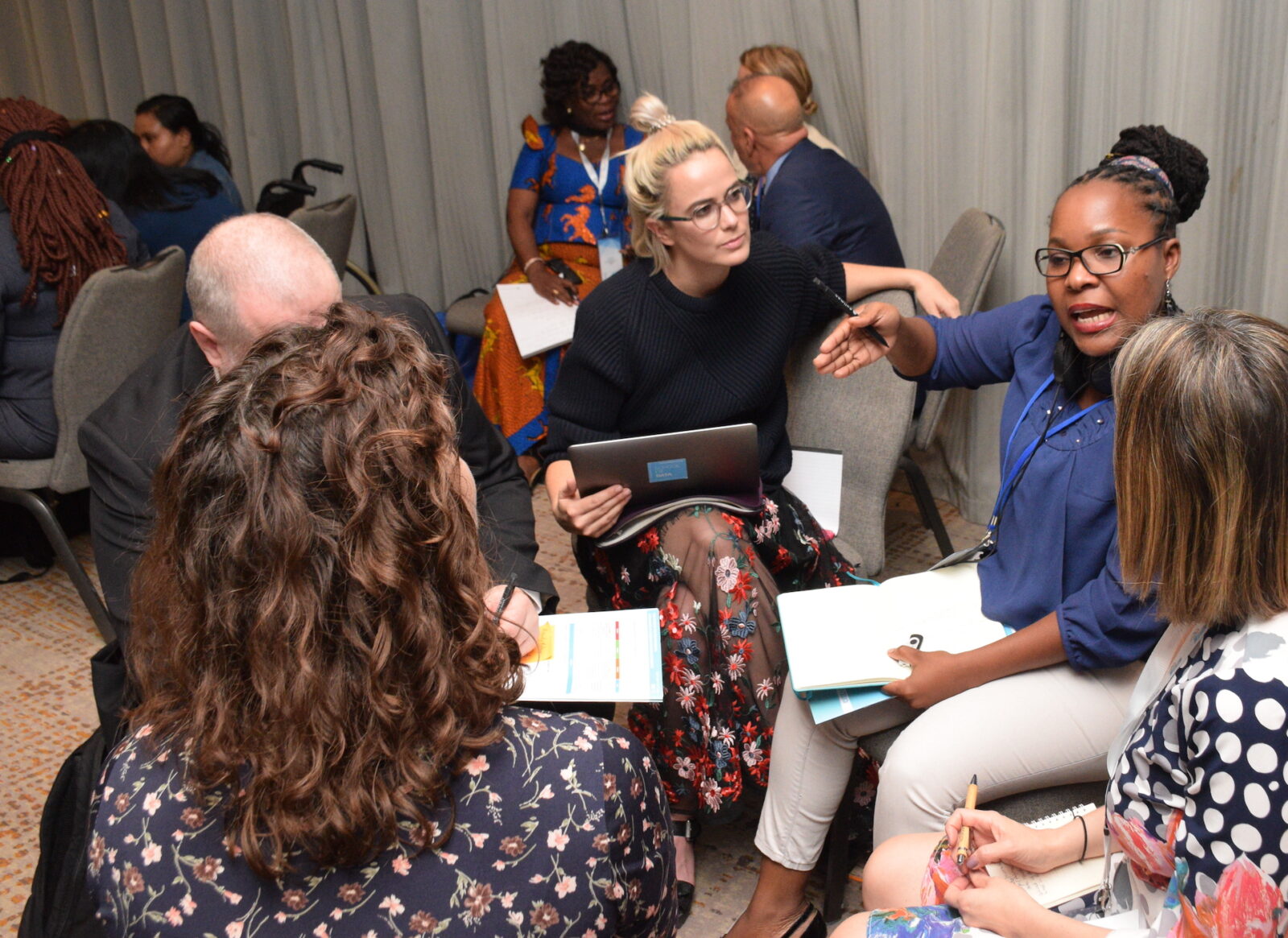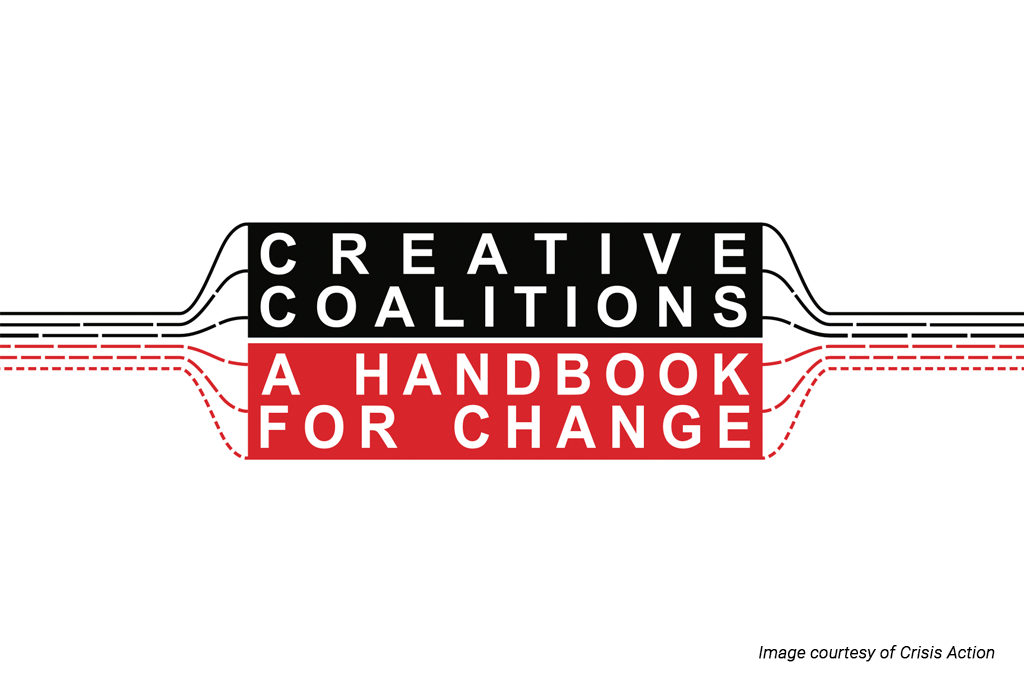Case studies from Bantay Kita-PWYP Philippines, PWYP Malawi and PWYP USA
To remain effective, pertinent and inclusive, coalitions need to adapt and evolve in response to changing circumstances, obstacles, and challenges. Publish What You Pay (PWYP) led research on three national coalitions, in the Philippines, the US and Malawi, in order to find out how they addressed burning challenges and adapted to strengthen their function as advocacy networks. The three case studies give inspiring examples of how a coalition can reorient its purpose, revisit its mission and ensure an effective inclusion of increasingly diverse membership.
The research led by the PWYP International Secretariat involved interviewing national coalition coordinators to produce case studies in PWYP Malawi, PWYP US and Bantay Kita-PWYP Philippines. The cases show that the form that PWYP national coalitions take is largely determined by their purpose, their context, the vision of their leadership and the aspirations of their members, and ideally evolves in response to major challenges.
In the case studies collated, these challenges, identified by national coordinators, included:
- how to reorient the coalition to go beyond securing disclosures towards strengthening accountability (in Malawi)
- how to revisit the coalition mission and make the coalition relevant to members whose focus went beyond transparency to issues including ‘decisions to extract’ (in the US)
- how to ensure the coalition can function effectively while including an increasingly diverse membership with different priorities and disparate views on extraction (in Philippines)
Malawi : reorienting objectives in tricky circumstances
In 2020, following a corruption scandal, Publish What You Pay (PWYP) Malawi went beyond seeking the disclosure of data through Extractive Industries Transparency Initiative(EITI) reports and began to use the process to demand reform to tackle corruption. But they found themselves in a ‘stand-off’ with the government who threatened withdrawal from the EITI process.
While PWYP Malawi had to tread carefully to continue to have an influential dialogue with the government, they were not prepared to continue working on a process that only led to the creation of more data. As a relatively ‘young’ coalition, founded in 2015, PWYP Malawi reached out to sister PWYP coalitions in the region to learn about how they could continue to seek genuine accountability through the EITI process in such tricky circumstances.
Coalitions evolve in response to changing circumstances, obstacles, and challenges. Through exchanging experiences and approaches with neighbouring national coordinators, PWYP Malawi boosted its confidence and its determination, and, informed by peers, brainstormed and agreed a new coalition strategy that included identifying exactly what was possible, realistic and desirable from EITI participation, beyond generating further data. This was particularly important given the levels of member capacity tied-up in EITI processes.
US : revisiting missions to re-power the coalition
For PWYP US, the impetus for adjusting its coalition model was its frustration in the challenges they encountered in securing its key goal of getting revenue disclosure rules agreed and implemented. While the US coalition had operated in a way that fits many of the attributes that practitioner-theorists use to define highly effective coalitions, the coalition had been frustrated in its achievement of its key objective because of state capture by fossil fuels interests, a factor that was not being explicitly addressed in the coalition approach. PWYP US faced a further challenge in remaining relevant to domestic civil society and communities that were increasingly occupied by issues other than revenue disclosures, including the need to face-off destructive extractives projects.
The PWYP US coalition therefore created the space to revisit its ‘origin’ objectives and to discuss what its potential contribution to the bigger picture of tackling the resource curse could be. It also meant brainstorming how the coalition could address the bigger forces that were preventing it from achieving its core founding objective to secure revenue transparency.
This resulted in a ‘re-powering’ and re-shaping of the coalition to re-accommodate a broad constituency of members and their changing priorities and aspirations. The case study describes some of the challenges and benefits of this repurposing process, and, as with PWYP Malawi, the role of strong female leadership in facilitating it.
Philippines : including an increasingly diverse membership
The case study in the Philippines, like the US one, also describes how a PWYP coalition has adapted to the demands of diversity and inclusion. The challenge for Bantay Kita-PWYP Philippines has been to create a coalition model that responds to the diversity of its membership that spans community groups that are avowedly anti-extraction to national organisations focussed on strengthening public benefits from extraction.
In facing this challenge, Bantay Kita evolved an organising model that seeks to strike a balance between formalisation (a formal, registered NGO with a Secretariat, international funding, a strategy, objectives, targets, policies, governance systems etc.) while maintaining and prioritising meaningful inclusion of members including community-based groups.
Bantay Kita-PWYP Philippines seeks to maintain this balance through relations with members based on continuous open consultation, trust and a commitment to elevating community voices. The case study describes the coalition’s practices that enable it to function effectively and beyond a narrow transparency focus.
Recipe for success: build trust and inclusivity, monitor purpose, revisit strategies
All three case studies demonstrate the essential role played by trust building in the creation of a functional coalition, as well as the need for coalition members and leaders to continually monitor coalition purpose and relevance, and the need for periodic revisits of strategy. The cases also point to some good coalition practices that can enable these (with some additional guidance on coalition ‘best practices’ from other sources at the end of the US case study).
Repurposing, creating new strategies and strengthening inclusiveness are likely to be priorities that many PWYP coalitions face as the mission evolves from its original focus on transparency to the broader set of community and accountability concerns.
Sharing learning from and amongst coalitions is a key objective of PWYP’s Vision 2020-2025 strategy. These case studies and other network resources can inform other PWYP coalitions as they face similar challenges, and trigger conversations across the PWYP network to enable coalitions to exchange ideas about how to manage these challenges.











